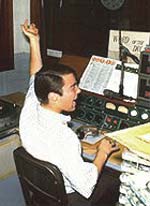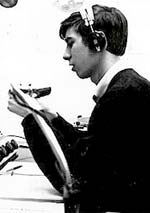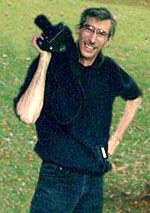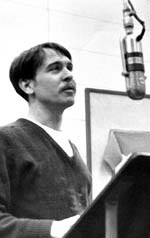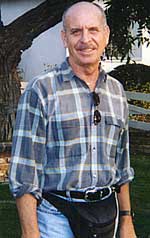 |
Our thanks to Bill Baldwin, Jr. for this collection of Golden Gifts from the Far East Network (Armed Forces Radio), 1969. There's much more about FEN Radio '69 at www.fenradio69.net |
|
[By Bill Baldwin, Jr.]
"Back in the late 60's, your typical AFRTS radio network (Japan, Europe, et al) consisted of one station which by its nature was obligated to broadcast a variety of musical programs, plus news and sports. Programming came in pre-packaged shows from AFRTS-Hollywood featuring everyone from Wolfman Jack and Gary Owens, to classical music, country, easy listening and jazz shows hosted by stateside DJ's. The local networks were also given blocks of time each day to fill.
Up until mid-1968, it was pretty much business as usual at FEN with the DJ's (all enlisted men) staying within the guidelines for AFRTS programming. Among other things that meant only playing records approved by AFRTS for broadcast which were actually pressed on official AFRTS LP's and sent around the world from Hollywood, and of course, identifying themselves by their military ranks, "Hi, this is Navy Journalist Bill Baldwin" etc.
|
![]()
|
. . . You're Short! Short! . . .
Pat Bailey came to FEN in mid-1968 and for just under a year was the number one DJ in Japan, English and Japanese radio combined. Twice a day, five days a week, Bailey's Fundial program aired, with his Top Hits Countdown from Billboard the basis for the playlist. There was no middle ground where Bailey was concerned. Fans either loved or despised Pat, with most falling in the former category. This sample is a microcosm of his work at FEN. You'll hear contest promos, spots (Savings Bonds instead of Chevy); tight production, responses to local journalistic reviews of Bailey and the rest of the rock shows on FEN — A Japan Times columnist ripped Pat in an article, so Bailey did a show dedicated to the writer which got yanked off the air by the PD halfway through the broadcast — and finally, a compilation of Bailey's last few days on the air and his four years of Air Force enlistment. Here, Pat makes a VERY big deal out of just how SHORT he is (the military term for how many days you had left before going home to the Big PX (USA) as a civilian and how ready he is to say sayonara to military service. Again, the angst of the times is reflected here. No FEN broadcaster would have dared to be so blatant in earlier years. Bailey was breaking ground here for sure.
| |||||

 Return to the Repository
Return to the Repository
| |||||
![]()
|
. . . And remember, re-up is a four letter word . . . [Description by Bill Baldwin, Jr.]
George Day was born and raised in Chicago and a Larry Lujack disciple (among others.) Day came to FEN in the summer of 1968 and was first sent up to one of the network's northern stations, in fact, the most northern you could get outside of the Soviet Union, namely Wakkanai Air Base on the island of Hokkaido. Affectionately dubbed, the "Fish City" (can you guess the main industry?), Wakkanai was home to the military's most intense listening post aimed at spying on Russian activities a mere 25 miles north in Siberia. George Day did his best to entertain the troops in this isolated, yet important outpost. Each day, his listeners couldn't wait to hear what Day might have the guts to say. This aircheck is without question the most "in your face" example of good On Air skills while directly challenging the military establishment's rules and regulations. In fact, the final segment of this compilation is the straw that literally broke the base commander's back where Airman Day was concerned. Immediately after signing off on his show, Day was given eight hours to get out of town or the AP's (Air Force Police) would presumably be given orders to shoot him on sight. Robin Williams did Robin Williams in "Good Morning Vietnam". George Day did it for real at FEN.
| |||||

 Return to the Repository
Return to the Repository
| |||||
![]()
|
. . . there's nothin' like a little sing-along with the folks . . .
[Description by Bill Baldwin, Jr.] I began my FEN broadcast career as a newscaster and soon became Sports Director. Besides twice daily 15-minute sportscasts, I did play by play of high school football and basketball and created my own Sunday night show, "Project Blues". When George Day went back to the states in the fall of 1969, 1 then took over the weekend program, "Nightbeat" which aired from 1 to 4 am Saturday and Sunday mornings. This "Nightbeat" air check is from a broadcast in early December of 1969. Growing up in Los Angeles, I was exposed to the best in AM radio from Wolfman Jack and Humble Harve, to Dave Hull "The Hullabalooer", Dick Biondi, Gene Weed, B. Mitchell Reed on KFWB, Emperor Bob Hudson and of course, The Real Don Steele. If I had to pick my favorite Los Angeles AM station it would have been KRLA. My "Nightbeat" show was influenced by what I'd heard growing up in LA listening to KFWB, KRLA and KFI, plus what was becoming the new broadcast trend, FM radio, specifically KMET with B. Mitchell Reed. For the four months I did "Nightbeat", good or bad, I pretty much did what I pleased from a programming standpoint. Here's the evidence.
| |||||

 Return to the Repository
Return to the Repository
| |||||
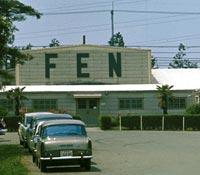
 Then, things began to change and by '69 the attitude of those of us working On Air reflected the increased angst of our age group in the States vis a vis the war. We were programming our shows as we liked, playing cuts from records we got from the record companies in Tokyo, not using our military ranks on air and in general doing what we could consciously and unconsciously to rock the military boat.
Therefore, because there was no uniform format and we were largely left to program our shows as we pleased, the Air Checks you're about to hear certainly don't reflect what was a consistent Top 40 formatted station sound in the US at the time. Perhaps, Pat Bailey's segment is as close as anything, but I think the rest of us reflected in our own ways, the spirit of Top 40 radio and the rebellion we all grew to love and celebrate that was and still is Rock and Roll radio."
Then, things began to change and by '69 the attitude of those of us working On Air reflected the increased angst of our age group in the States vis a vis the war. We were programming our shows as we liked, playing cuts from records we got from the record companies in Tokyo, not using our military ranks on air and in general doing what we could consciously and unconsciously to rock the military boat.
Therefore, because there was no uniform format and we were largely left to program our shows as we pleased, the Air Checks you're about to hear certainly don't reflect what was a consistent Top 40 formatted station sound in the US at the time. Perhaps, Pat Bailey's segment is as close as anything, but I think the rest of us reflected in our own ways, the spirit of Top 40 radio and the rebellion we all grew to love and celebrate that was and still is Rock and Roll radio."
